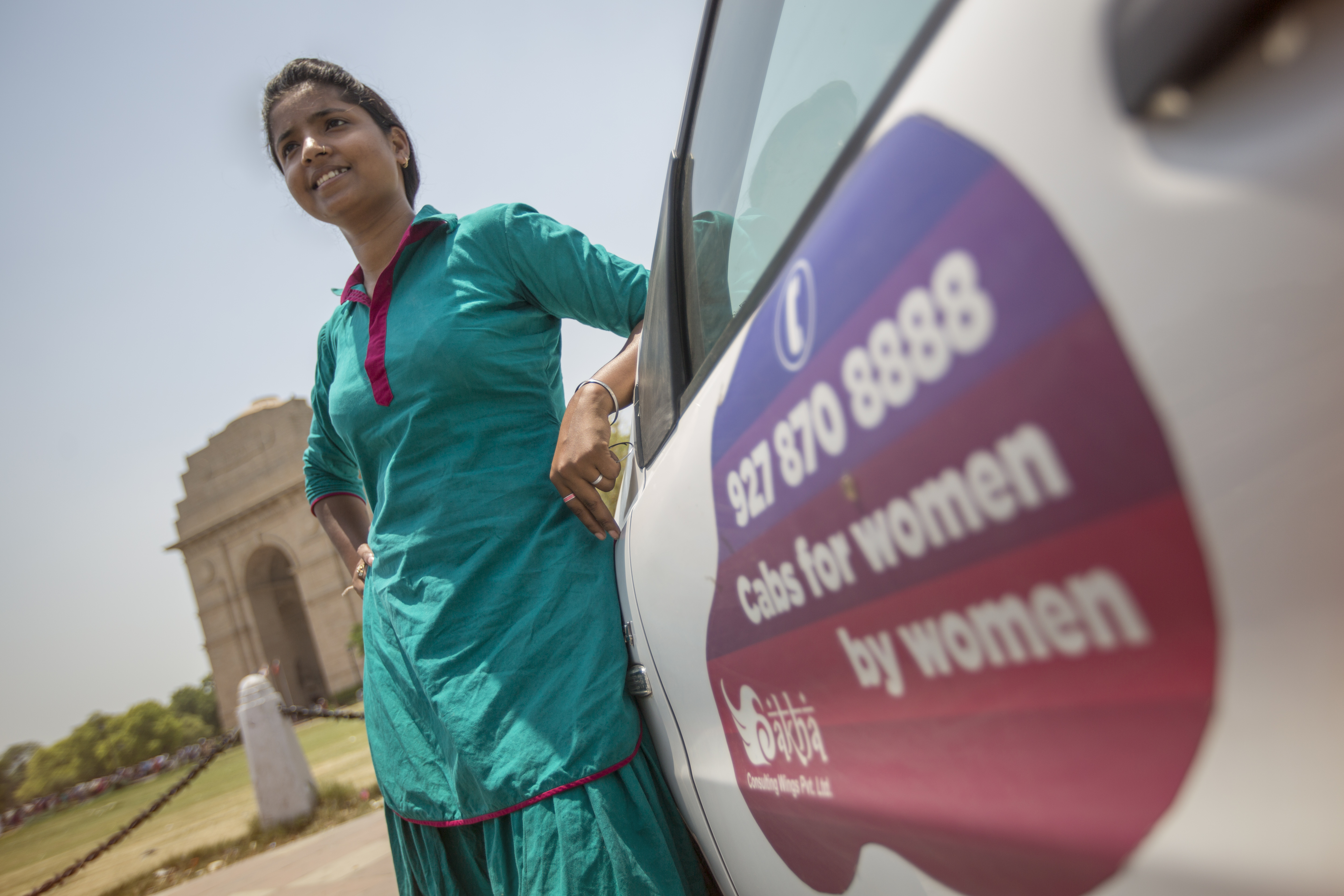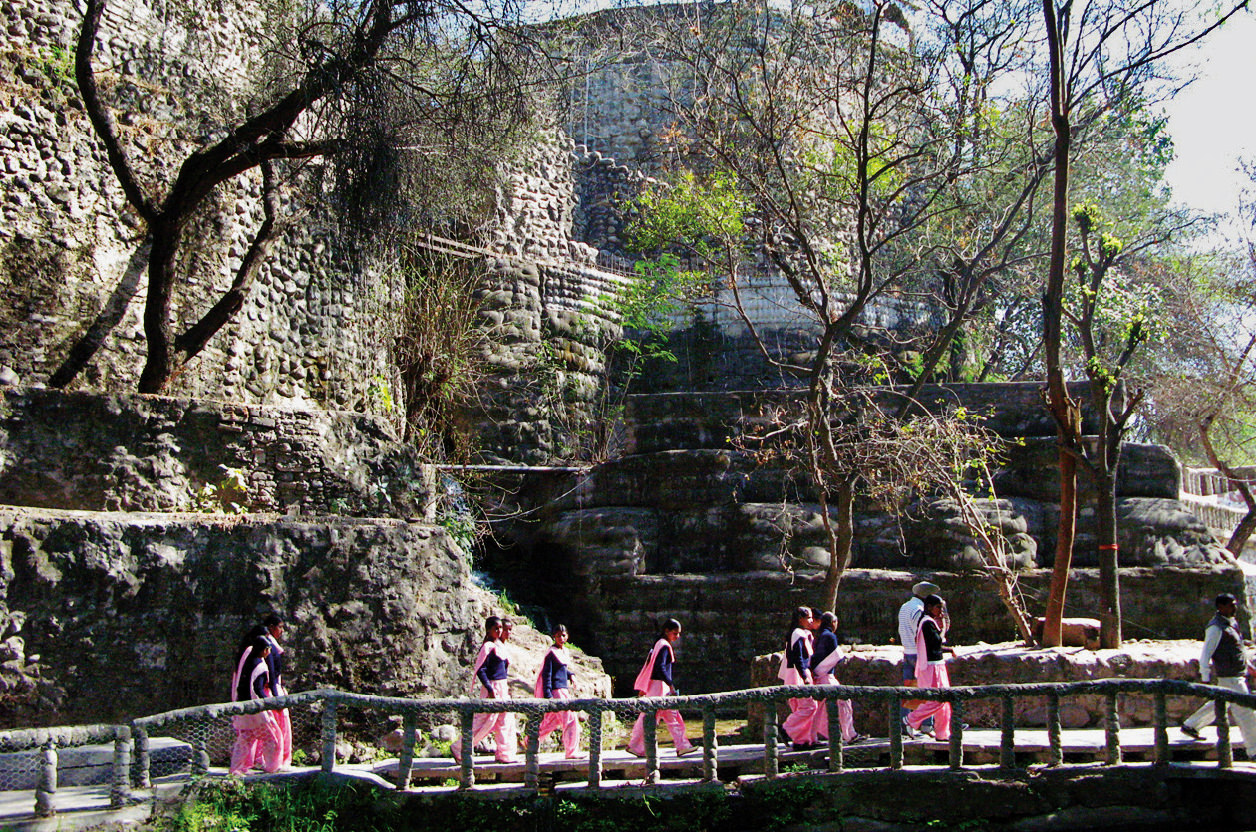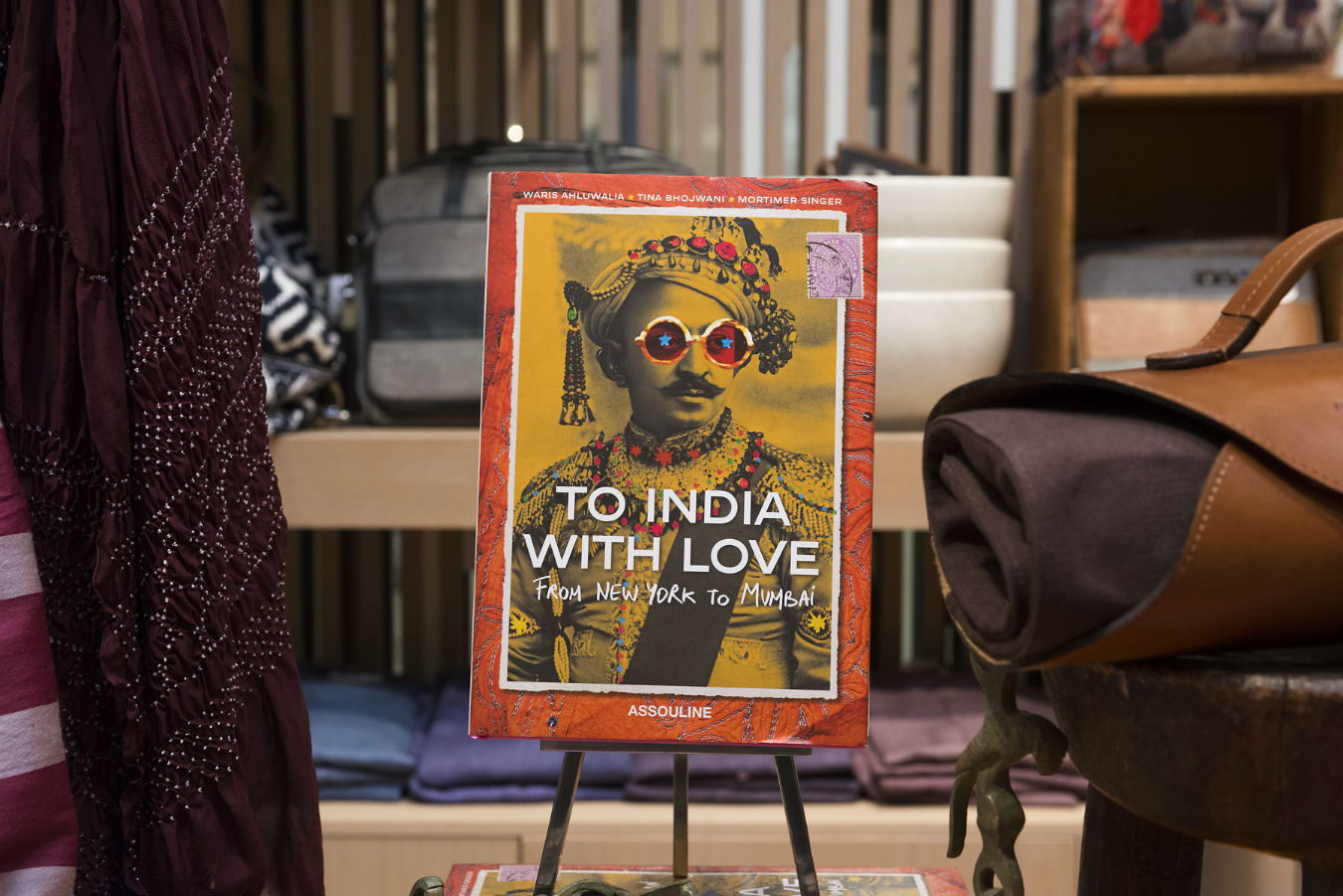A Foundation Fostering Women’s Employment and Sustainable Tourism
Lady driver.

“Social norms defeat economic logic,” Meenu Vadera says when asked about the decline in women’s employment in India over the last decade, a trend that runs counter to overall improvements worldwide. But these numbers are not stopping those concerned with women’s rights in India, least of all Meenu Vadera.
In 2008, Vadera took her education in social policy and planning at the London School of Economics to the next level. After spending decades working for the non-profit sector in both India and Africa, Vadera established her own foundation in New Delhi: Azad.
The goal of the Azad foundation lies primarily in promoting the livelihoods of women, especially in fields not traditionally accessible to them. “Livelihoods was one area where there hadn’t been many significant inroads,” Vadera says, “So I wanted to try that out.”
The goal of the Azad foundation lies primarily in promoting the livelihoods of women, especially in fields not traditionally accessible to them.
She explains her decision to start her own initiatives: “There was a need to get back to the work on the ground, I feel that our rhetoric outpaces the real work. Our language becomes more radical, but the lives of people don’t really change that much.” Since 2008, Vadera’s success has contributed to the growth of a vast network of organizations in India, and abroad, that work to provide jobs and effect policy change in the world of women.
The Azad Foundation began by launching programs like Women on Wheels to train women as chauffeurs and taxi drivers, training participants for work both in the public sector (they trained the first female bus driver in New Delhi’s history!) as well as for employment with Vadera’s for-profit driving agency called Sakha.
Sakha employs drivers based on what Vadera calls a “disruptive business model.” By utilizing contracts and employment support services, The Azad Foundation hopes to provide an alternative to the precarious contract-labour model usually used for taxi drivers and chauffeurs, where drivers rent their own cars and do not have many safety nets from employers.
“To some extent there is a push back, but there is also support,” Vadera says of the foundation’s rebellion against gender norms around certain types of labour. Every day the foundation is working to “understand what it takes to bring women into jobs that have been primarily male dominated.” Through her initiatives, women can train to be full-time chauffeurs, cab drivers, or chauffeurs for hire, and the foundation plans on training tour guides soon.
Tourism itself has been a steady driver for economic growth in the 21st century. A fact that has its ups and downs: while many places see huge influxes of money with tourism, local economies can become dependent on the stable flow of tourists.
Her impressive run of community betterment does not seem to be slowing down, and she plans, along with her organizations, to “keep making as much noise as possible.”
Sakha’s cab services generate a significant portion of their revenue by catering to partnerships with sustainable tourism companies like G Adventures. Overall, Vadera thinks that tourism works well for the cause of empowering women. Not only do partnerships with tour companies provide steady work for the drivers, but the conversations with people from different parts of India and the rest of the world gives much needed insights to many who may be cloistered within otherwise restrictive worldviews.“Driving people from all over the world, it’s almost like they get a window to the world. It has done so much for [the women’s] understanding of the world and their confidence. They become somewhat of a resource for the community,” says Vadera.
Her impressive run of community betterment does not seem to be slowing down, and she plans, along with her organizations, to “keep making as much noise as possible.” She insists that people who are interested in effecting change must commit to long-term goals and understand that it takes time. Even more important for young activists is persistence; “It’s not as if you make a change and that change stays forever.”
For those considering international travel over the holiday season, know that there are options where your money will have the best impact on local communities.
In order to understand the impacts of the Azad Foundation, people can also order the wonderful book—Lady Driver—which gives drivers working for Sakha a platform to tell their stories.
_________
Never miss a story. Sign up for NUVO’s weekly newsletter, here.




